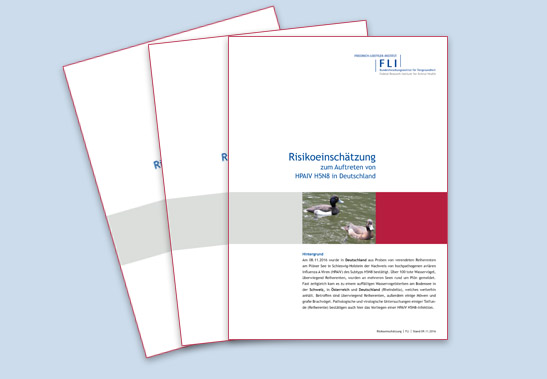Between 01 and 30 April 2023, 3 HPAI outbreaks were detected in poultry in Germany (Table 1). The outbreaks affected two private mixed holdings as well as a turkey fattening farm with approx. 9,000 birds.
In North Rhine-Westphalia, HPAIV H5N1 was detected in a juvenile crane in a zoo in Rheine on 13 April 2023.
Most cases in wild birds were reported from Bavaria. Similar to the previous month, the most frequent reports concerned gulls. Reports of mass mortalities of black-headed gulls in German inland breeding colonies suggest local, distinctly epizootic events.
In addition to four cases of HPAIV H5N1 in foxes and a grey seal in March, two more HPAIV H5N1 cases were found in red foxes in Hamburg and North Rhine-Westphalia in April.
The risk of HPAI H5 viruses spreading to breeding colonies of shorebirds and gulls within Germany is considered high, especially due to the continuing high infection rates, especially among black-headed gulls in northern and central Europe.
The risk of HPAIV H5 introduction into German poultry farms and bird populations in zoological facilities through direct and indirect contacts with wild birds is considered high, inter alia because black-headed gulls in particular are also found inland at all times of the year and their habitats may overlap with poultry production areas.
A low risk of introduction through spread of the virus between holdings (secondary outbreaks) within Germany is assumed. The risk of entry through the sale of live poultry in the travel trade or poultry exhibitions/fairs within Germany and Europe is considered as moderate.


